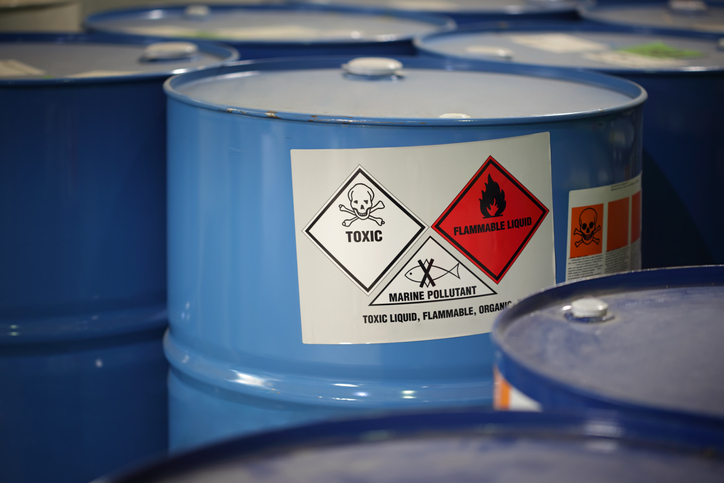Intelice Solutions: Blog

Small Businesses Under Direct Attack From SEO Poisoning
Small Businesses Under Direct Attack from SEO Poisoning
Search Engine Optimization (SEO) is a set of techniques digital marketers use to improve click-through rates, website traffic, and organic ranking on search engine result pages (SERPS). Ideally, legitimate marketers use SEO practices to enhance business websites.
However, hackers are now using a new tactic known as SEO poisoning to attack website visitors and spread malware. If you run a small business website and use SEO to optimize your website content, it’s essential to understand how to protect your website and visitors from malicious hackers.
What Is SEO?
To understand SEO, we first break down the relevance of SEO for small businesses. Most small businesses rely on websites to promote their business online. However, competition is stiff, and therefore, it’s crucial to optimize online content to improve online visibility and traffic.
When users browse the internet, they type a few words in the search query and see what comes up. But how does a search engine, such as Google and Bing determine the results of a SERP? First, search engines crawl the internet for information that is useful to the searcher. Second, they use complex algorithms to rank websites and display organic results.
So, where does SEO come in? Search engines look for specific elements on a website to rank them. These elements include keywords, links, and mobile-friendliness. Marketers use SEO tactics to make your site crawlable and visible during searches—the higher the SEO optimization, the better your website’s ranking. With a high rank, your site is more likely to appear on a user’s organic results. Over time, your site enjoys better website traffic and business leads.
Notably, marketers use “white hat SEO” tactics- this means that the SEO techniques maintain a site’s integrity and align with search engine guidelines. On the other hand, “black hat SEO” uses techniques that trick a search engine into awarding a high ranking.
What Is SEO Poisoning?
Cybercriminals understand SEO and are now using it to hack unsuspecting users. There are two common ways SEO poising occurs.
- The first is when the hacker tricks users into visiting a malicious site and downloading malware. In addition, the hackers may discredit legitimate sites to increase traffic to their websites.
- The second is when a hacker accesses a legitimate site and plugs malware into the site for visitors to download.
Once a hacker has access to a legitimate small business website that ranks highly on the web, they inject it with specific terms and content. Since the users trust the website, they may download any information presented by the site. The poisoned content may appear as a PDF for the user to download. Once the user clicks on the download, they immediately get redirected to a malicious website, and the hackers drop a payload on the user.
A payload is the part of the attack that causes harm to the unsuspecting visitor. The payloads may include:
- Data theft of private information such as login credentials and financial details
- Activity monitoring for spying, blackmailing or collecting consumer behavior for marketing
- Displaying incessant advertisements to visitors
- Deleting, modifying, or stealing files
- Running background processes such as crypto mining on devices
SEO poisoning groups may also try to discredit legitimate small business websites to increase traffic to malicious sites. They may accomplish this by convincing visitors that they were hacked after visiting a legitimate site. Hackers may also use black hat SEO techniques to improve their site’s ranking.
One popular technique is keyword packing or keyword staffing. In this practice, hackers stuff as many keywords as possible on a site without offering relevant information for visitors. Another tactic is fake traffic, where hackers bump up the views on their site to boost ranking and attract more visitors.
While black hat SEO may improve a site’s ranking, it rarely lasts. This is because search engines better identify black hat SEO tactics and immediately crackdown on such sites. As such, hackers are more likely to hijack legitimate sites to use them to spread malware or collect information.
How To Protect Your Small Business Website From SEO Poisoning
It’s crucial to protect your website from malicious hackers and negative SEO.
- Configure your small business site for better security
It’s important to protect your website from access through vulnerabilities such as plugins, web servers, and applications. For instance, hackers may use cross-scripting to introduce malicious code to your website through a plugin. Proper configurations prevent attacks from baiting keywords and metatags on your site.
- Encourage a culture of cybersecurity in your small business
While your cybersecurity team may handle the technical aspects of cybersecurity, it’s essential to educate yourself and your employees on common attacks. For instance, phishing is a common cyberattack where hackers pose as legitimate sites and use emails, messages, websites to trick users into providing private information. Train your employees to identify cybersecurity attacks to avoid providing confidential information or downloading malware.
- Use updated software
Use legitimate and updated plugins, firewalls, themes, CMS, and software to reduce vulnerabilities for hackers to exploit. Also, ensure all your devices have an active antivirus to prevent drive-by downloads and notify you when you download malicious files. Lastly, use multi-factor authentication to prevent logins from unauthorized users.
- Have routine checks
Hackers are constantly finding new ways to exploit vulnerabilities on your website. As such, it’s best to conduct routine checks for black hat SEO or copies of your site. For example, “URL Inspection” by Google shows how your website appears when Google bots crawl your page. It also triggers scripts a hacker may have installed on your site.
Protect Your Website from SEO Poisoning
Protecting your website from SEO poisoning protects your business and visitors. Fortunately, working with the right cybersecurity team helps you stay ahead of malicious attacks and emerging tactics hackers may use to collect private information or as for ransom.
Intelice Solutions partners with small business owners to provide security against SEO poisoning. We check your website for vulnerabilities, reinforce your cybersecurity and help your staff avoid tricks from hackers. Contact us today for cybersecurity solutions for your small business in Washington DC.




